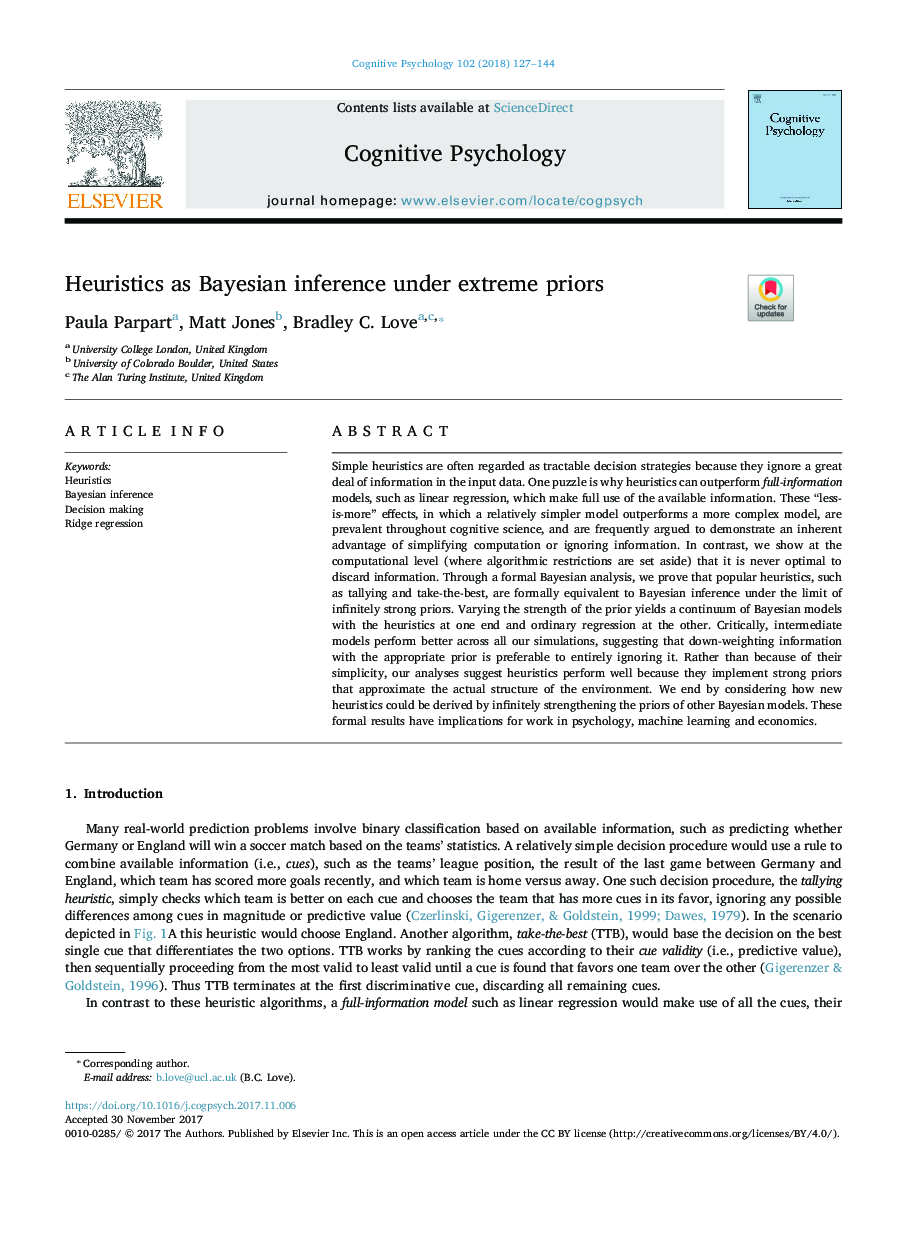| کد مقاله | کد نشریه | سال انتشار | مقاله انگلیسی | نسخه تمام متن |
|---|---|---|---|---|
| 7272651 | 1473362 | 2018 | 18 صفحه PDF | دانلود رایگان |
عنوان انگلیسی مقاله ISI
Heuristics as Bayesian inference under extreme priors
ترجمه فارسی عنوان
اکتشافات به عنوان استنتاج بیزی در عناصر شدید
دانلود مقاله + سفارش ترجمه
دانلود مقاله ISI انگلیسی
رایگان برای ایرانیان
کلمات کلیدی
اهریمنی، استنتاج بیزی، تصمیم سازی، رگه رگه،
موضوعات مرتبط
علوم زیستی و بیوفناوری
علم عصب شناسی
علوم اعصاب شناختی
چکیده انگلیسی
Simple heuristics are often regarded as tractable decision strategies because they ignore a great deal of information in the input data. One puzzle is why heuristics can outperform full-information models, such as linear regression, which make full use of the available information. These “less-is-more” effects, in which a relatively simpler model outperforms a more complex model, are prevalent throughout cognitive science, and are frequently argued to demonstrate an inherent advantage of simplifying computation or ignoring information. In contrast, we show at the computational level (where algorithmic restrictions are set aside) that it is never optimal to discard information. Through a formal Bayesian analysis, we prove that popular heuristics, such as tallying and take-the-best, are formally equivalent to Bayesian inference under the limit of infinitely strong priors. Varying the strength of the prior yields a continuum of Bayesian models with the heuristics at one end and ordinary regression at the other. Critically, intermediate models perform better across all our simulations, suggesting that down-weighting information with the appropriate prior is preferable to entirely ignoring it. Rather than because of their simplicity, our analyses suggest heuristics perform well because they implement strong priors that approximate the actual structure of the environment. We end by considering how new heuristics could be derived by infinitely strengthening the priors of other Bayesian models. These formal results have implications for work in psychology, machine learning and economics.
ناشر
Database: Elsevier - ScienceDirect (ساینس دایرکت)
Journal: Cognitive Psychology - Volume 102, May 2018, Pages 127-144
Journal: Cognitive Psychology - Volume 102, May 2018, Pages 127-144
نویسندگان
Paula Parpart, Matt Jones, Bradley C. Love,
